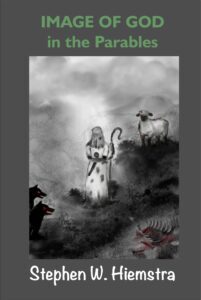The Callous Judge

Pilate said to him, What is truth?
(John 18:38)
By Stephen W. Hiemstra
Truth comes in many forms, some of which we prefer to ignore. The Book of Job articulates three ethical systems that are often in conflict:
One is good if one obeys the law (law).
One is smart when one understands how the world really works (wisdom).
One can only be justified through divine intervention (grace).
What then is truth? Pilate was smart enough to ask the question, but did not have the courage to act on what he knew.
The Parable of the Callous Judge
Sometimes leaders do the right thing for the wrong reason, as Jesus illustrates in the Parable of the Callous Judge:
And he told them a parable to the effect that they ought always to pray and not lose heart. He said, In a certain city there was a judge who neither feared God nor respected man. And there was a widow in that city who kept coming to him and saying, Give me justice against my adversary. For a while he refused, but afterward he said to himself, Though I neither fear God nor respect man, yet because this widow keeps bothering me, I will give her justice, so that she will not beat me down by her continual coming. And the Lord said, Hear what the unrighteous judge says. And will not God give justice to his elect, who cry to him day and night? Will he delay long over them? I tell you, he will give justice to them speedily. Nevertheless, when the Son of Man comes, will he find faith on earth? (Luke 18:1-8)
It is interesting that Jesus relates this story of conflicting motivations with faith. Too often we find ourselves struggling with multiple motivations and can be accused of even others. In the parable, the judge acts on behalf of the widow, not because it is the right thing to do under the law—although we assume it is—but because he wants to avoid her nagging. It is his own benefit, not hers, which prompts him to act.
The Ethical Dilemma
Motivations and even principles often come in tension with one another. Bonhoeffer (1976, 367) cites this example:
A teacher asks a child in front of the class whether it is true that his father often comes home drunk. It is true, but the child denies it. The teacher’s question has placed him in a situation for which he is not yet prepared. He feels only that what is taking place is an unjustified interference in the order of the family and that he must oppose it.
In Bonhoeffer’s example, the student is presented with an ethical dilemma and must choose between the Commandments to tell the truth (Exod 20:16) and to honor your parents (Exod 20:12). Which Commandment is more important and how do you decide?
More generally, the Ten Commandments provide theological principles outlining good and bad behavior. It is helpful to distinguish good and bad principles from right and wrong actions (Johnson and Zerbi 1973, 12). In Bonhoeffer’s example, it is good for the student to tell the truth and to honor parents, but it is wrong for the teacher to pose the question about the father’s drunken behavior (and embarrass the student publicly) and wrong for the student to verify it in public.
Principal Agent Problem
The Parable of the Callous Judge and the Bonhoeffer story are both examples of a principal agent problem, which arises when a leader makes organizational decisions based on personal benefits rather than organizational benefits. In the Bonhoeffer example, suppose that the teacher is a sadist who derives pleasure from tormenting students. By putting the student on the spot to verify the father’s drunkenness in public, the teacher derives sadistic pleasure at the risk of opening the school up to a potential lawsuit from the student’s family. In doing so, the teacher’s interests and the school interests deviate demonstrating a principal agent problem, a special kind of ethical dilemma facing leaders.
Sexual harassment, pedophilia, taking bribes, and narcissistic leadership are all potential manifestations of the principal agent problem. In the postmodern context, a distinguishing characteristic of an amoral organization is that leadership prosecutes principal agent problems while generally eschewing the moral failings of members and leaders.
In a world of conflicting motivation and incomplete information, law and worldly wisdom are insufficient. The intervention of the Holy Spirit remains our only option. In the Parable of the Callous Judge we meet a God who desires to be part of our daily lives.
The Callous Judge
Also see:
The Face of God in the Parables
The Who Question
Preface to a Life in Tension
Other ways to engage online:
Author site: http://www.StephenWHiemstra.net
Publisher site: http://www.T2Pneuma.com
Newsletter at: https://bit.ly/Janu_25, Signup
The post The Callous Judge appeared first on T2Pneuma.net.



